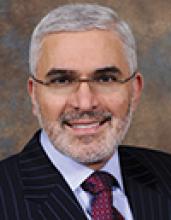What makes a first-class psychiatrist? What are the traits that characterize the “ideal” psychiatrist? How does a good psychiatrist become great? There are many possible answers depending on who is asked.
In my view, after observing countless fellow psychiatrists over 3 decades in various settings, I have concluded there are 7 domains that determine the caliber of psychiatrists that we all aspire to be. It may be difficult to possess all the traits across all 7 domains but I propose it as an idealized model and a road map for the journey toward peak performance in our profession.
Domain I: Personal attributes
- The ability to listen “actively” and observe “comprehensively”
- Psychological mindedness and curiosity
- Skillfully engages and develops therapeutic alliance with patients from the first encounter
- Compassion and empathy, but pragmatic firmness about boundaries
- Nonjudgmental stance and cognizance of one’s own limitations
- Impeccable integrity and ethical conduct.
Domain II: Clinical mastery
- Thorough familiarity with the principles of psychiatry and models of behavior and psychopathology
- Rigor in applying a diagnostic label by employing the skills of a physician to check patients’ medical status to rule out general medical etiologies; monitors patients’ physical and mental health and refers as needed
- Establishes a skillful biopsychosocial treatment plan requiring extensive knowledge of psychopharmacology and psychotherapy
- Applies evidence-based interventions wherever available
- Always checks and deals with countertransference issues.
Domain III: Professionalism and leadership
- Always well dressed and groomed with a professional appearance; projects the identity of being a physician; leadership of mental health teams
- Involved in local, state, national, and international professional societies
- Raises the profile of psychiatry within the medical field by networking with other physician organizations and participating in medical initiatives.
Domain IV: Organizational effectiveness
- Leads balanced and well organized professional and personal lives
- Smooth working relationship with individuals or agencies relevant to the patient’s treatment, including family members, medical and mental health professionals, hospital administrators, clinics, insurance companies, advocacy groups, and the legal system
- Maintains an organized and complete medical record with measurement-based ratings of illness severity and side effects.
Domain V: Societal role
- Establishes one’s self as a role model for those seeking advice and guidance not only for psychiatric disorders, but for various societal dilemmas and is an effective communicator
- Feels comfortable in being a public figure in one’s community whose opinions are valued by laymen as well as other professionals
- Serves as an ambassador for the profession by educating the public via various media outlets to erase misperceptions about mental illness or psychiatry, and to rebut and neutralize the occasional venomous assaults recklessly hurled by antipsychiatry cults.
Domain VI: Lifelong learning
- Convinced of the need for continuous learning in an era of logarithmic growth of medical knowledge
- Reads several articles a week from key journals about recent clinical and scientific advances and applies them to patients when appropriate
- Attends or presents at continuing medical education meetings and asks questions or makes comments (active, not passive attendance).
Domain VII: Contribution to new knowledge
- Recognizes the vast unmet needs in psychiatry, supports research, and understands that the research of today is the better treatment of tomorrow
- Refers patients to clinical research protocols at the local academic institution and offers to collaborate as a rater or data collector
- Takes the time to write up unusual clinical cases as a letter to the editor or case report and generate new clinical ideas
- If not a full-time academic, volunteers to teach or supervise medical students or residents at the local medical school or teaching hospital.
Very few psychiatrists can excel at all 7 domains, but most meet the criteria for several of them. Every psychiatrist can move from good to great with a modicum of effort and motivation. If most of us do that, the caliber and standing of our psychiatric profession will continue to escalate.


